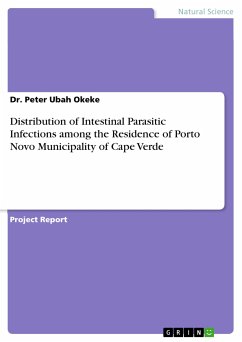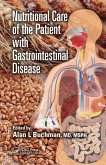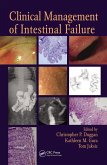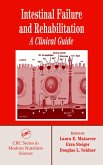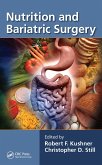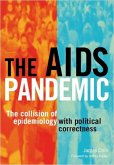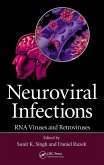Project Report from the year 2012 in the subject Biology - Parasitology, ( Atlantic International University ), language: English, abstract: BACKGROUND: Intestinal parasitic diseases are among the most common diseases globally and for this reason, it is very important to study its occurrence and its degree of risk in contamination. No previous record is available in the municipality of Porto Novo, hence the necessity of this study. AIMS: To obtain the occurrence of common intestinal parasites among the inhabitants of Porto Novo municipality. Stool testing performed on 391 subjects between March to June, 2011 age ranging from 11 months to 82 years old, 141 (36.06%) were infected with one or more of the intestinal parasites. Among protozoa, Entamoeba coli (22.51%), Entamoeba Histolytica/Dispar (7.67%) and Giardia Lamblia (5.90%) were the most isolated intestinal parasites and among the helminths, Hymenolepis nana (2.30%), Ancylostoma Duodenale (1.28%) and Trichuris Trichuria (0.51%) were isolated. Age distribution did not show a definite pattern of infectivity rather females (24.60%) were mainly infected than males (11.50%). Hence, concluded that intestinal parasites pose a serious public health problem in the municipality of Porto Novo and that its degree of contamination is still high, therefore, treatment measures, National deworming programs at schools and sanitary improvement strategies is advocated for the population of the municipality to reduce and or eradicate this sporadic problem.
Bitte wählen Sie Ihr Anliegen aus.
Rechnungen
Retourenschein anfordern
Bestellstatus
Storno

